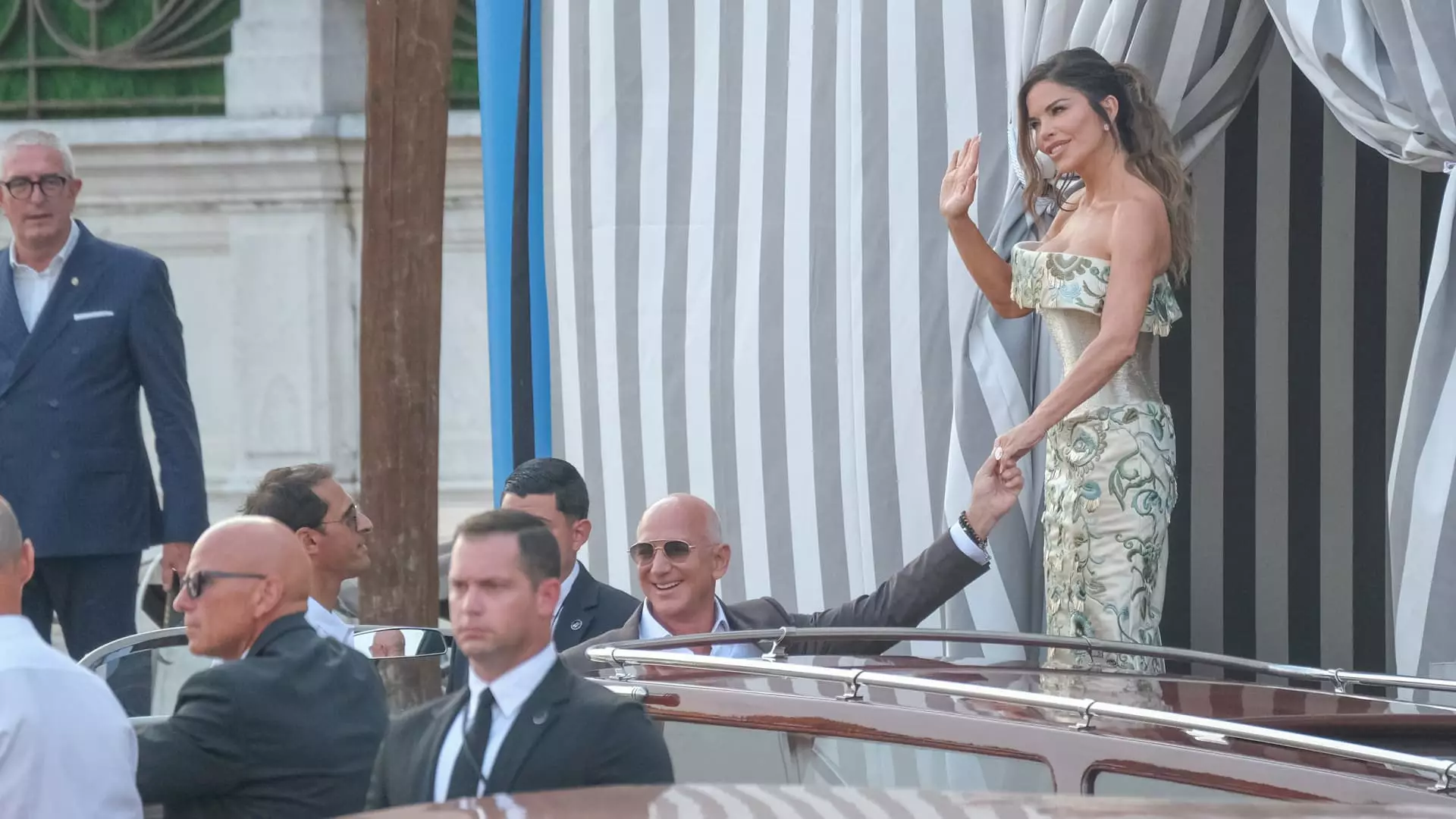When billionaire Jeff Bezos chose Venice for his wedding, he didn’t settle for modesty—he orchestrated a spectacle of wealth that highlights the deep chasm separating the ultra-rich from the everyday lives of ordinary citizens. In a city already strained by mass tourism and environmental challenges, this multi-million dollar extravaganza holds up a glaring mirror to a world where money translates into unchecked privilege and access. The three-day affair, reportedly costing close to $50 million, involves 200 guests of immense influence—celebrities, tech moguls, political elites—converging on the historic city to bask in an exclusive bubble of luxury.
The choice of venues alone—a private island and the Arsenale complex, once a bastion of maritime power—signals the audacity of such an event. The fact that the reception was moved last minute due to security concerns only underscores the aristocratic aura surrounding the ceremony. This is not a wedding; it’s a declaration of wealth and influence, wrapped in the mystique of glamor and secrecy. While such ostentation is hardly new for the super-rich to showcase, the scale and location of this event bring into sharp focus the tensions between plutocratic displays and public spaces.
Venice Under Siege: Tourism, Authenticity, and Local Discontent
Venice has long been a city celebrated for its beauty and cultural heritage, but it has increasingly transformed into a playground for wealthy outsiders rather than a vibrant community for its residents. The Bezos wedding ignites a simmering frustration among Venetians, who have witnessed their city’s infrastructure buckling under the relentless pressure of mass tourism. This event exemplifies a broader problem: the commodification of heritage sites as backdrops for billionaire fantasies, often at the expense of the local population’s quality of life.
These concerns are palpable in the protests that accompanied the wedding celebrations, with activists and locals decrying the use of a UNESCO world heritage site as an exclusive party venue. The environmental strain is notable as well—private jets, superyachts, and helicopters epitomize a carbon footprint far removed from sustainable practices or civic responsibility. Venice’s decision to introduce a tourist entry fee last year was a necessary but insufficient measure to mitigate over-tourism. Events like Bezos’s wedding risk undermining those efforts by demonstrating how extreme wealth can bypass any limitations that aim to preserve the city’s delicate balance.
The Illusion of Generosity Amidst Wild Excess
In the narrative surrounding the wedding, Bezos’s charitable contributions receive respectful mention, including a €2 million donation to protect Venice’s lagoon ecosystem. Yet such gestures, however generous, strike me as a form of performative philanthropy rather than substantive reparations. When your personal celebration consumes tens of millions in resources, including the commandeering of entire luxury hotels and extortionate security measures, small-scale donations feel like symbolic afterthoughts.
This is not to undervalue genuine philanthropy, but rather to question the moral dynamics at play. Wealth of this magnitude isn’t just an individual achievement; it’s a consequence of systemic economic imbalances and policies that enable the concentration of capital. The question we should ask isn’t just how much Bezos gives away, but how his wealth is amassed and whether a city like Venice should be a playground for such displays—or safeguarded as a shared human treasure.
Cultural Heritage versus Private Spectacle: The Future of Global Public Spaces
The Bezos wedding scandal encapsulates a growing global trend: historic sites morphing into exclusive venues for the ultra-wealthy while being simultaneously degraded for the wider public. This tension isn’t unique to Venice—it’s a microcosm of how globalization and financial inequality threaten cultural preservation worldwide. When access to centuries-old landmarks becomes a privilege for the select few, we lose the universality that such heritage sites symbolize.
If Venice succumbs to these pressures, it risks becoming more a theme park for the global elite than a lived, breathing city with a soul. The affluent arrive in private jets, throw Gatsby-esque parties, and retreat without meaningful engagement with the local community or its needs. The residents are left to contend with rising costs, limited housing, and environmental degradation. How can a liberal democracy uphold the rights of both residents and visitors when the rules of access increasingly favor vast fortunes?
The Bezos wedding is more than a headline event—it is a somber reminder that without deliberate policy interventions, wealth will continue to commandeer public spaces and erode cultural legacies. If Venice wants to survive as a living city, there must be a reckoning about who it serves: the inhabitants whose roots run deep or the ever-more transient and affluent visitors.

